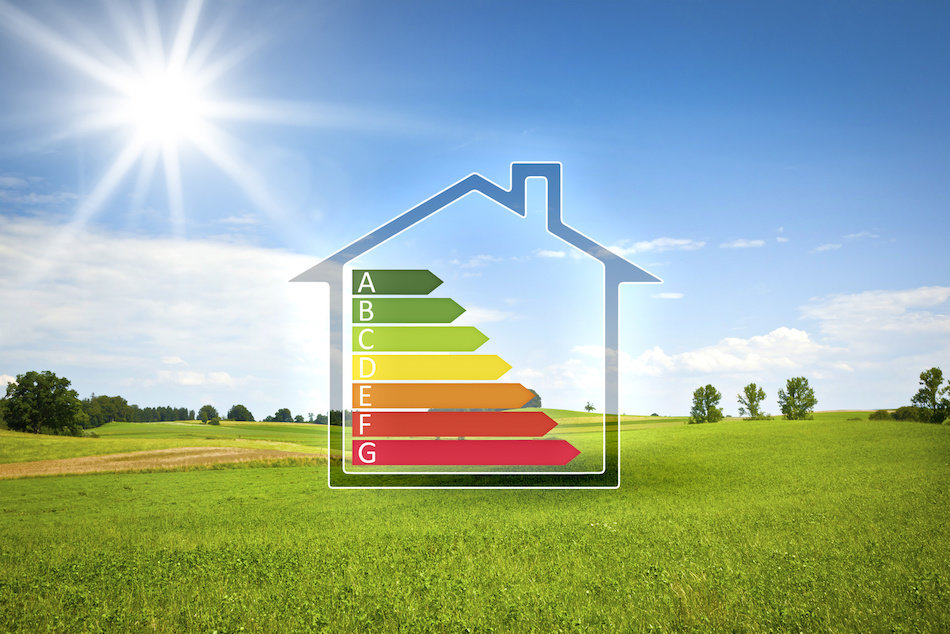Which Energy Upgrades Have the Highest Returns?
Posted by Justin Havre on Friday, March 23rd, 2018 at 11:36am.
 There's been a lot of talk about how homeowners can do their part when it comes to saving the environment, and yet not every homeowner feels equipped to get started with this popular revolution. Solar panels, energy-efficient appliances, and water-saving plumbing can all carry some very hefty price tags for owners who are watching their budget. For those who don't have a lot of capital to invest or just aren't sure how long they'll stay in their home, it's time to consider which energy efficient upgrades will net the best paybacks depending on the circumstances.
There's been a lot of talk about how homeowners can do their part when it comes to saving the environment, and yet not every homeowner feels equipped to get started with this popular revolution. Solar panels, energy-efficient appliances, and water-saving plumbing can all carry some very hefty price tags for owners who are watching their budget. For those who don't have a lot of capital to invest or just aren't sure how long they'll stay in their home, it's time to consider which energy efficient upgrades will net the best paybacks depending on the circumstances.
Start with an Audit
If you're wondering how to make your home more energy efficient, start with an audit. Committing to energy efficient upgrades may mean shelling out some cash before even getting started. While this isn't always welcome news to the budget-conscious homeowner, there may be more benefits to it than first meet the eye. A home energy audit lets the homeowner know exactly which areas of the home are leaking the most energy, which allows them to prioritize their list of upgrades. An average audit costs about $500, but it's possible to have the ducts tested for only $300. Considering many people are wasting their treated air to inefficient ducts, this may be a wiser choice if utility bills are sky high.
Look for Incentives
From neighborhood initiatives to tax break incentives from the government, there are plenty of people in power who want to give homeowners the power to change their home and improve the neighborhood. Upgraded homes not only improve resale values, they can also attract a certain type of buyer. Those who care about the environment are also the same people who aren't going to litter or neglect their yards and exteriors. Even if there are no specific incentives available in a particular area, a band of homeowners may be able to plead their case to local officials to start their own green movement.
Heating and Cooling
Focusing on heating and cooling costs will always be the go-to for homeowners who may not want to have an audit, or put in their own solar panels. There is no better home improvement decision when it comes to low cost investments than replacing your insulation. Doing so will almost always net more than 100% returns if done correctly. And before a homeowner assumes that their home is too new to replace or improve the insulation, consider that insulation standards change considerably from year to year.
If a homeowner does choose to take this step, they need to account for the potential decrease in ventilation in their home. A professional installer can tell a homeowner more about how to balance insulation and ventilation, so there are no mold problems down the line.
Change Appliances
Smart technology and energy-efficient appliances combine to give homeowners more ways to save. For example, a smart sprinkler may cut down on outdoor water usage by up to two thirds. With smart technology, homeowners can automate their home's energy consumption to help save money. The sprinkler will only deliver water when needed, taking into account both current conditions and the long-term forecast.
Energy efficient light bulbs and smart thermostats are also excellent ways to immediately cut back on electrical or gas bills. Other appliances are not quick return investments and will take longer to become economically viable for the homeowner. Energy-efficient washing machines will typically return only about $.21 a load, which will generally take about 6 years worth of laundry to pay for itself.
Solar Panels
Solar panels are best for people who have no intention of leaving their home anytime soon. While it can certainly raise the resale value of the home, they can cost up to $15,000 to install — and that's after all the tax credits in the world have been applied. Considering panels can return $30,000 after 20 years, they're not necessarily a bad investment though. How efficient is solar energy? Those who have solar panels often over-produce, then sell back their excess power to the grid for further profits. Whether a homeowner is in a sunny area or not, solar panels can yield significant enough returns to be worth it.
Zero-Waste Homes
To eliminate utilities entirely, a zero-waste Bayside home recycles or reuses water and draws power from the sun, wind, or ground. Technology has improved so much that homeowners can use the water from their showers to keep the grass green, and the heat from the internal temperature of the Earth to keep them warm. Homeowners can also make use of composting as a way to eliminate their garbage bills as well.
There are more than a few options homeowners have to get their home to a much greener place. Thankfully, those upgrades also spell savings for the homeowner's wallet over time, which can be a great way to spur people into action. The best part is that homeowners can pick and choose which improvements make the most amount of sense given the age, condition, and location of the actual property.
